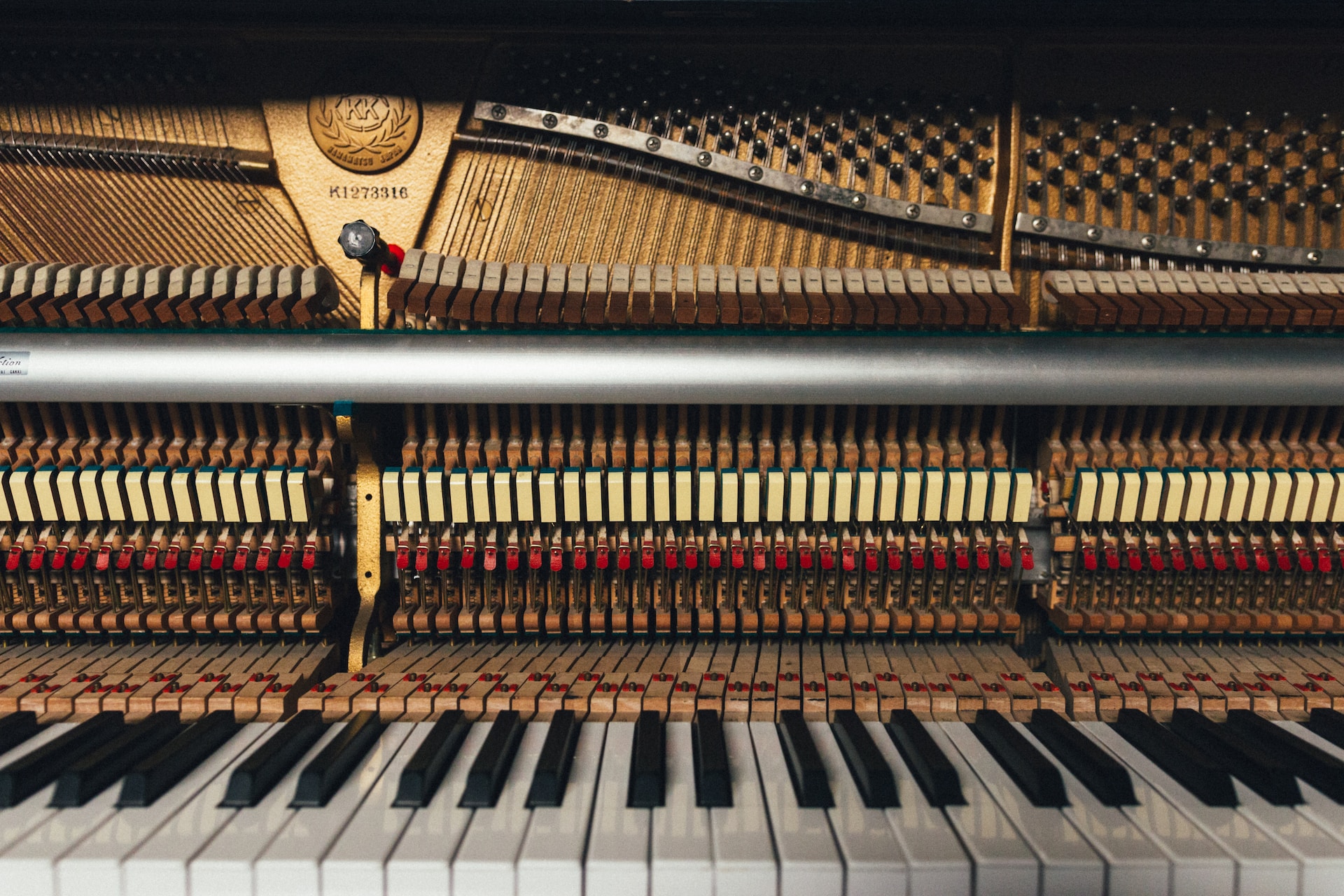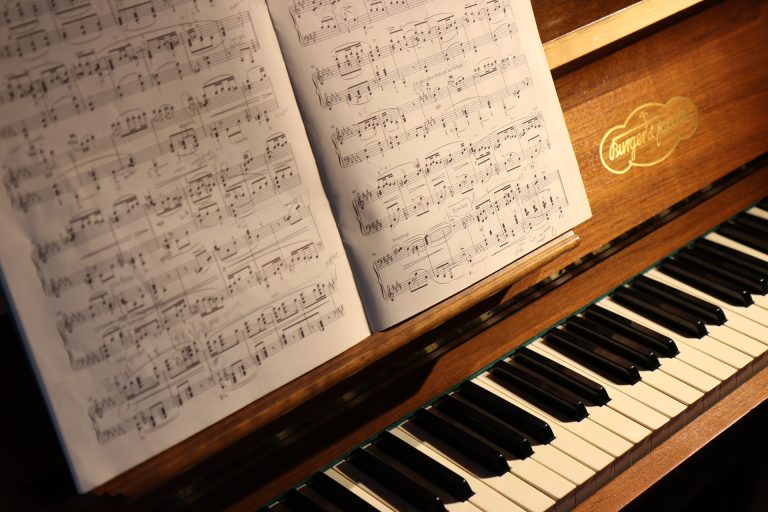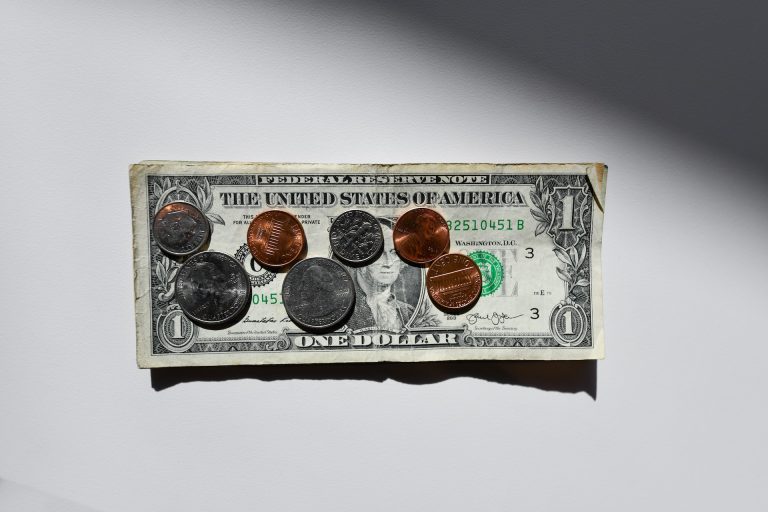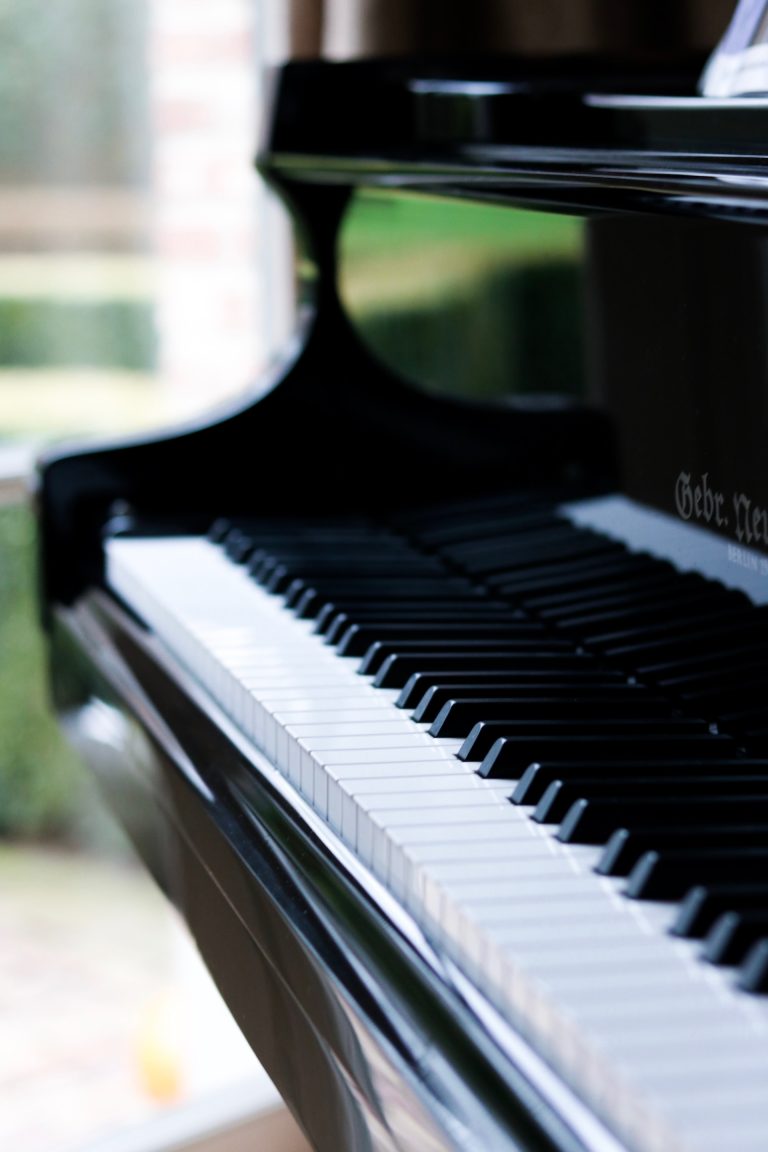Keeping in Tune with your Piano’s Needs
As you start your musical journey, it is important to know how to take care of your instrument so that it will provide you with a lifetime of service. Your piano will bring great joy to you and your family if it is well maintained. Care of the cabinet and its contents are vital to keeping your investment sound.
Cleaning Cabinetry
If you have a wood finish cabinet be sure to keep drinks and other food items that may cause damage away from the piano. The most effective cleaning method for the cabinet is a slightly damp cotton cloth or a feather duster. Do not use a dry cloth. Polishes are not recommended due to potential damage to the interior of the piano. It is best to wipe with the grain of the wood. If there are marks that have not been cleaned, you may use a mild cleanser such as Murphy’s Oil Soap (available in most stores.) A lacquer finish can be cleaned with a soft slightly damp cloth, wiping with the grain of the piano. If you have a gloss finish there are products such as Oz Cream Polish or Guardsman Furniture polish may be used. Polyester finishes are more scratch resistant than lacquer and are best maintained by dusting and cleaning with a soft slightly damp cloth. Avoid using polishes on satin finishes. Do not use sprays or abrasive cleansers.
Cleaning Piano Keys
To clean your keys, use a soft damp cloth and a small amount of soap if needed. Be sure the cloth is wrung out thoroughly. Wipe the keys from the fall board to the edge of the key. Do not wipe from side to side. Dry keys immediately after wiping. Do not use sprays or abrasive cleansers.
Positioning your Piano
The location of your instrument is vital to its health. Avoid direct sunlight, excessive temperature and humidity changes. Avoid placing near vents.
Interior Upkeep
The interior of the piano has many delicate parts and is best cleaned by your piano technician. If you must clean it yourself please do so carefully with a feather duster or soft cloth. Many companies sell vacuum tools available specifically for the piano. To avoid staining from the oils of your skin, do not touch the copper strings.
Humidity Control
Your instrument will work better and hold its tuning longer if it has a humidity control device installed. The Piano Life Saver System will maintain a constant humidity level with minimal effort from the user. The system minimizes the expansion and contraction of action parts. This provides improved touch and more keyboard control. The Lifesaver System also minimizes rust, felt deterioration and glue failure. The System is barely visible and will maintain constant humidity levels. The humidity control price averages around $600 but are well worth the investment.
Piano Tuning and Maintenance
The most important thing to remember when choosing your technician is qualifications. Seek out a technician who is a member of the Piano Technicians Guild or an equivalent program. This will ensure that your tuner has had formal training in their art. Always get estimates in advance. Piano tuners can come from a wide range of experience. Be sure to ask their qualifications. It is important to tune your instrument two to four times per year. Keeping your piano in tune will make the piano more enjoyable to play as well as to hear. An out of tune piano or a piano that has not been maintained can be frustrating for the pianist to play. Your piano technician may at times recommend additional work be done over time. Be sure to get estimates from several tuners on major restorations.
In conclusion, taking time to properly care for your piano will ensure you a pleasurable playing experience. Your instrument may be passed down for generations to come and enjoyed by many.




